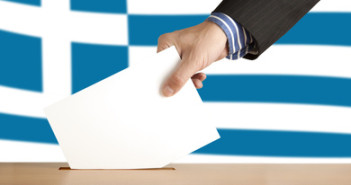The reported willingness of Germany to compromise and settle for only one reform for now probably leads the way to an agreement between Greece and its creditors in the upcoming days.
While June 30th is when the current bailout ends and also the IMF bundled payment is due, a hurdle worth double that amount awaits on July 20th – an ECB payment which is more politically sensitive.
Why July 20th is heaver
On July 20th, Greece has to pay the institution led by Mario Draghi the whopping sum of €3.5 billion – these are bonds that were bought by the ECB by Draghi’s predecessor, Jean-Claude Trichet, back in 2010 via the SMP program.
While the ECB can print as much money as it wants, and is already doing that in the current QE program worth €60 billion a month, defying the European institution is probably worse than delaying an IMF payment.
Not only is the sum about double June’s €1.7 billion that Greece needs to pay the IMF by June 30th, but the ECB sits in Frankfurt and the IMF in Washington.
Compromises
As we noted yesterday, Greece has nothing, so it has nothing to lose. German Chancellor Angela Merkel was the first to blink. It’s better to kick the can down the road and cut some slack to Greece now than face a chaotic outcome.
Also on the Greek side there seems to be willingness to move forward on the primary surplus and other topics, and the government is criticized from the left, with communists placing Tsipras in the same poster as his predecessors.
Indeed, we are getting closer to a deal. An EU official, Pierre Moscovici, had the following to say (bolding mine)
I am convinced that divergences have now been narrowed enough so that in the days to come we can intensify our work and reach the outcome we all want
Moscovici often plays the “good cop” in dealing with Greece. However, talk about an advance in talks also came from Dijsselbloem, the Dutch finance minister who heads the Eurogroup.
Is there real light at the end of the tunnel? Or is it the Grexit train?
We will know soon.
EUR/USD reacts more to Greek news when the going gets tough. When there is hope, traders refocus on monetary policy divergence, which points lower.
More: Flashing Red for EUR/USD – BNP Paribas
